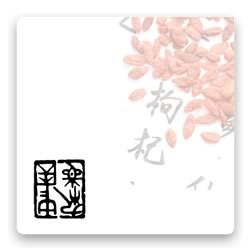We use cookies to make your experience better. To comply with the new e-Privacy directive, we need to ask for your consent to set the cookies. Learn more.
Acupuncture for Phantom Limb Pain: A Case Study
Did you know?
For the cost of 5 articles (students) or 10 articles (practitioners) you can buy a year's access to the entire Journal of Chinese Medicine article archive.
£4.00
VAT Exempt
In stock
SKU
JCM111-19
Introduction: Current research suggests that more than 80 per cent of amputees suffer from phantom
pain and phantom sensations post-amputation. Whilst the evidence for the use of acupuncture in this
condition is limited, the results have been positive to date. This study was undertaken to investigate the
use of acupuncture following upper limb amputation in a male patient suffering from debilitating phantom pain and other phantom phenomena, including the feeling that his phantom hand was clenched shut. Method: Three sessions of acupuncture at a specialised amputee therapy centre utilised points on the contralateral limb, combined with acupressure around the shoulder girdle of the amputated limb. Points utilised were on multiple channels, including the Lung, Large Intestine, Liver, Small Intestine, Heart, Pericardium and San Jiao (Triple Burner). Outcomes were measured using a visual analogue scale (VAS) and subjective reports from the patient. Results: Initially the VAS was nine out of ten for pain. During the second session the patient reported that his phantom hand felt as if it had partially opened, and it remained open over the next few weeks. During the third session he reported that the hand had opened fully and was now completely flat. The VAS score was now four out of ten. Conclusions: Although there is limited scientific evidence to support the use of acupuncture in the treatment of phantom phenomena, this case study clearly highlights its potential benefits. Further work is needed to establish a larger body of evidence for this intervention to ensure that the management of this complex condition is optimised for the future.
pain and phantom sensations post-amputation. Whilst the evidence for the use of acupuncture in this
condition is limited, the results have been positive to date. This study was undertaken to investigate the
use of acupuncture following upper limb amputation in a male patient suffering from debilitating phantom pain and other phantom phenomena, including the feeling that his phantom hand was clenched shut. Method: Three sessions of acupuncture at a specialised amputee therapy centre utilised points on the contralateral limb, combined with acupressure around the shoulder girdle of the amputated limb. Points utilised were on multiple channels, including the Lung, Large Intestine, Liver, Small Intestine, Heart, Pericardium and San Jiao (Triple Burner). Outcomes were measured using a visual analogue scale (VAS) and subjective reports from the patient. Results: Initially the VAS was nine out of ten for pain. During the second session the patient reported that his phantom hand felt as if it had partially opened, and it remained open over the next few weeks. During the third session he reported that the hand had opened fully and was now completely flat. The VAS score was now four out of ten. Conclusions: Although there is limited scientific evidence to support the use of acupuncture in the treatment of phantom phenomena, this case study clearly highlights its potential benefits. Further work is needed to establish a larger body of evidence for this intervention to ensure that the management of this complex condition is optimised for the future.
| Author | Anna Housley |
|---|---|
| JCM Issue | JCM111-19 |
Write Your Own Review
* Orders shipped outside of Europe are eligible for VAT relief and will not be charged VAT.

